Sharp rise in women caught carrying knives
- Published
'My boyfriend bought me knives'
Knife possession offences involving women in England have increased steeply since 2014 - rising by at least 10% every year, police figures show.
Some 1,509 offences were recorded in 2018 - an increase of 73% over the last five years - data obtained following freedom of information requests shows.
Youth workers say some women carry weapons for gangs as they are less likely to be stopped by police.
The Home Office said it funds schemes to help gang-affected women and girls.
Figures for England show that between 2014 and 2018 there were more than 5,800 recorded knife possession crimes involving women.
The BBC contacted the four police forces in Wales but the figures are incomplete. Police Scotland and Police Northern Ireland figures were unavailable.
It comes against a backdrop of rising knife crime nationally and after the number of fatal stabbings in England and Wales was last year the highest number since records began.
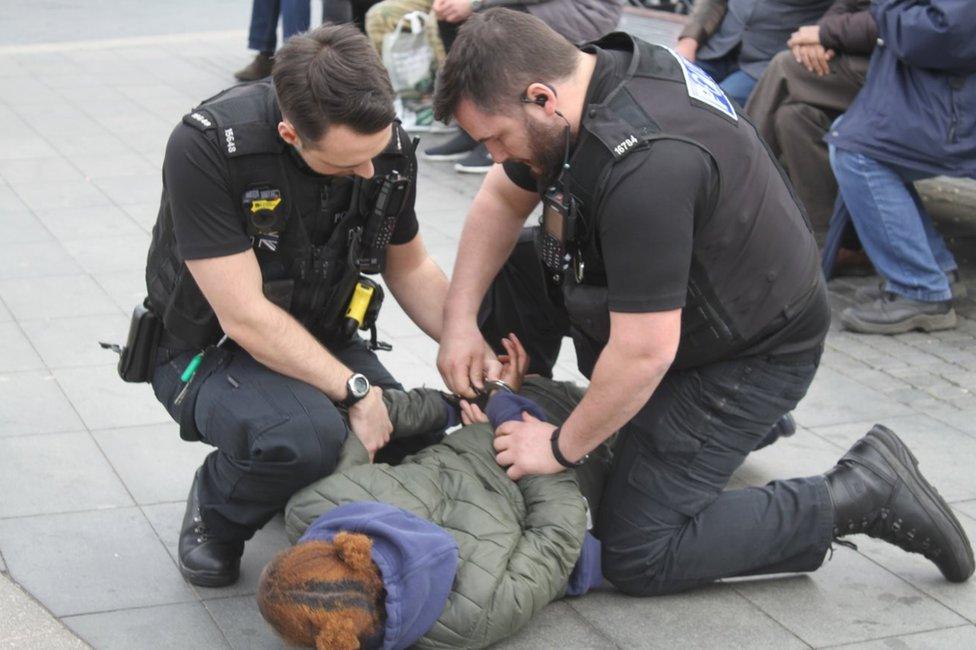
Some 1,509 knife possession offences involving women were recorded in 2018
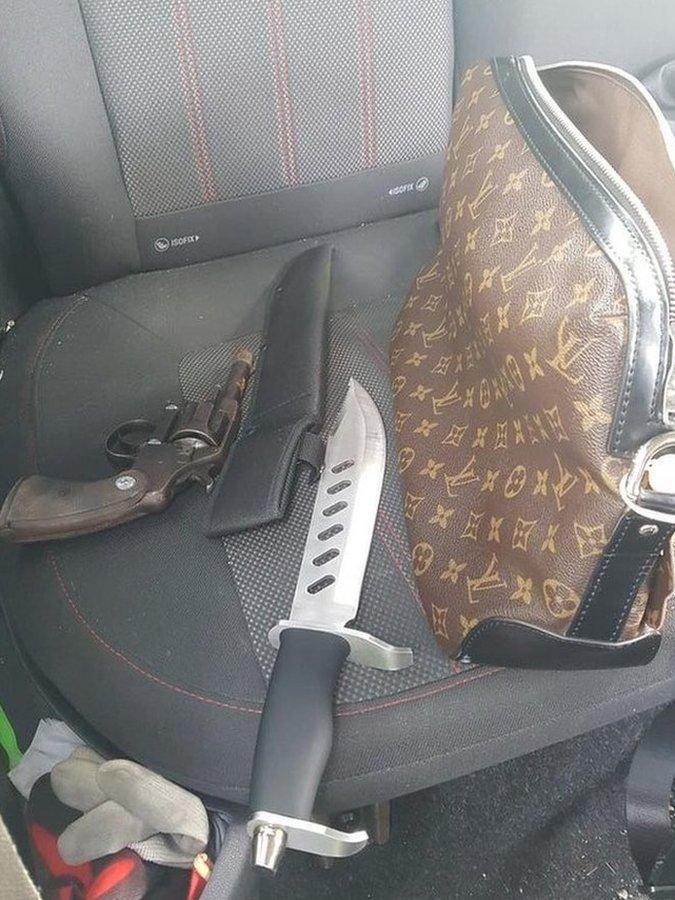
West Midlands Police found a gun, bullets and a knife in a designer handbag after searching a car
Data from 38 forces out of 39 in England shows almost a quarter of recorded offences involved girls under the age of 18 - with the youngest aged seven.
While London's Metropolitan Police saw the highest number of possession cases involving women, parts of northern England have seen female knife possession crimes increase at a faster rate.
London's Metropolitan Police recorded a 52% increase over five years, with a total of 916 recorded offences from 2014 to 2018.
During the same time, Merseyside Police saw a 54% rise, to 499 offences, while the number of offences in Greater Manchester doubled, with 95 recorded offences last year.
In South Yorkshire there was an 82% rise over five years - with 248 offences involving women.

Theresa John regularly carried a knife for 12 years. She said it "became part of my identity" on the streets in Essex.
"I used to name my knives. When I was 16 I had one that was like a flick Stanley blade and I used to call it Uncle Stan.
"If anyone asked me 'have you got Unc on you', I'd be like 'yeah'. That was my pet until I was 21."
After a chaotic and difficult childhood, Theresa's life spiralled out of control. In her early 20s she became addicted to heroin and crack cocaine and worked as a prostitute to fund her addiction.
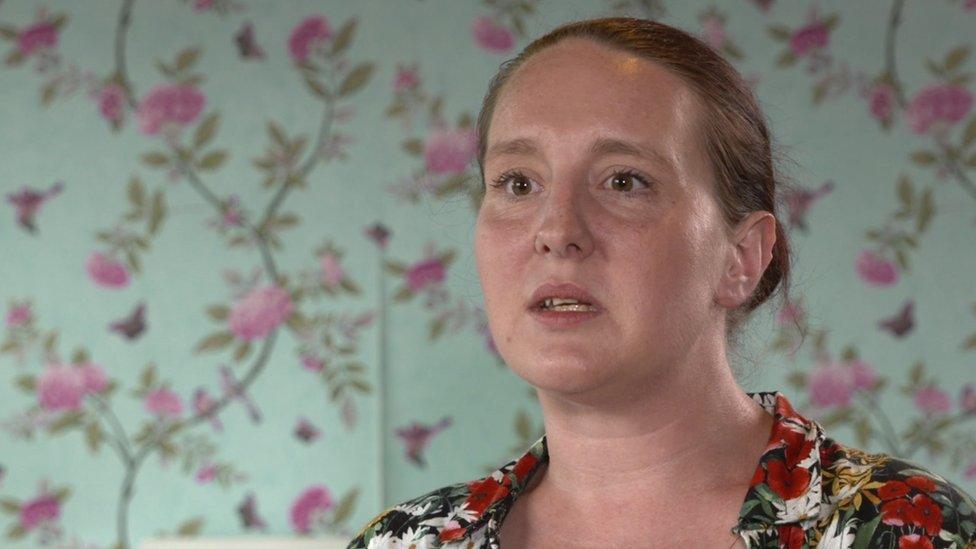
Theresa says she regularly carried a knife for 12 years
"I'd either have a knife or a pair of scissors because when I was out working on the streets. There would be different guys who would force you to do stuff.
"I stayed in this lifestyle of crime and madness and just brokenness. I was in a very abusive relationship to the point that my kids were taken into care and at that point I just lost all hope.
"I started taking heroin, I was out on the streets working in prostitution. I used to get in a lot of fights - there was a lot of violence."
One night, the scissors were used as a weapon on her and a man stabbed her in the back of the head.
And in 2012, Theresa stabbed her next door neighbour and was sentenced to 10 months in prison for actual bodily harm and possession of a knife.
Now 35 years old, she says: "It was like this mist came over me and I charged at her with the knife, and just stabbed her straight in the top of her head."

Jennifer Blake is a former gang leader from Peckham, in south London, who now works as a community support worker and independent gangs consultant.
"For some women it's a normal thing to have in your bag, like lipstick," she says.
"We have got girls that stab, but it's just like the elephant in the room. No-one wants to talk about it because no one knows how to deal with it.
"Everywhere you go you have problems with girls and their identity, their self-worth and those are the vulnerable ones that boys end up picking up."
She says some girls and women from broken homes see street gangs as their family and will do anything to fit it.
"Knife, guns, drugs - they are the couriers for it. They're not going to get stopped by police, and the men know that."
'A small proportion'
The Home Office said it was investing £220m into steering both young men and young women away from violent crime.
For female offenders specifically, it supports and funds young people's advocates who work with gang-affected young women and girls in London, Manchester and the West Midlands.
A spokesman added: "We recently announced plans to recruit 20,000 more police officers and empower them to use fair and intelligence-led stop and search, to prevent more young people falling victim to knife crime."
Earlier this year South Yorkshire Police was one of seven forces to receive extra Home Office funding to tackle violent crime.
The force's assistant chief constable, Tim Forber, said while knife crime is still predominately a male problem, it is increasingly about "vulnerability" rather than gender.
"It's a very small proportion [of women] but it's a worrying proportion - we don't want to see any young people, any women carrying knives in society.
"I don't think it's any more nuanced, than it is for men, it's about vulnerable young people getting drawn into the fringes of organised crime."
- Published8 August 2019
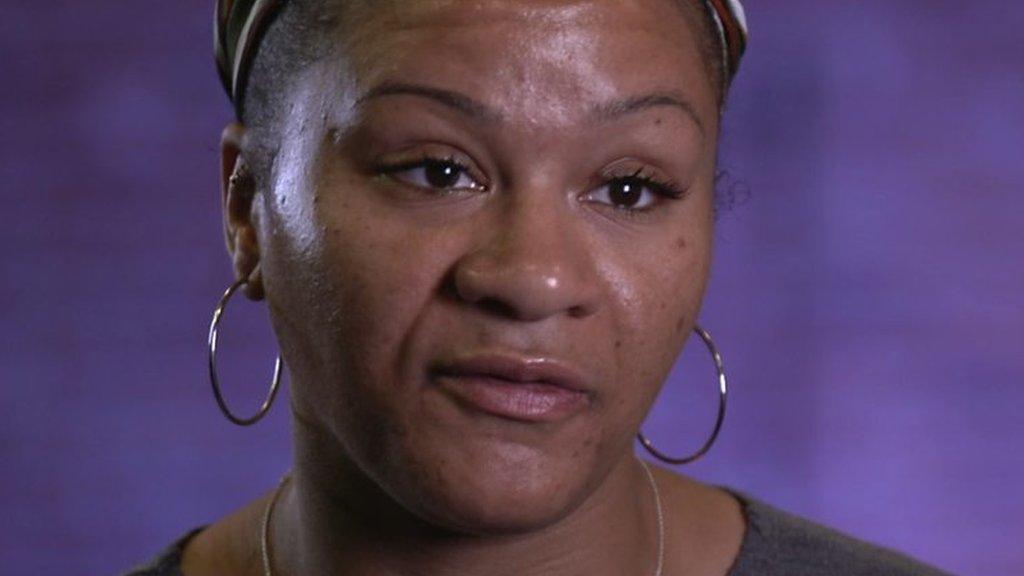
- Published7 February 2019
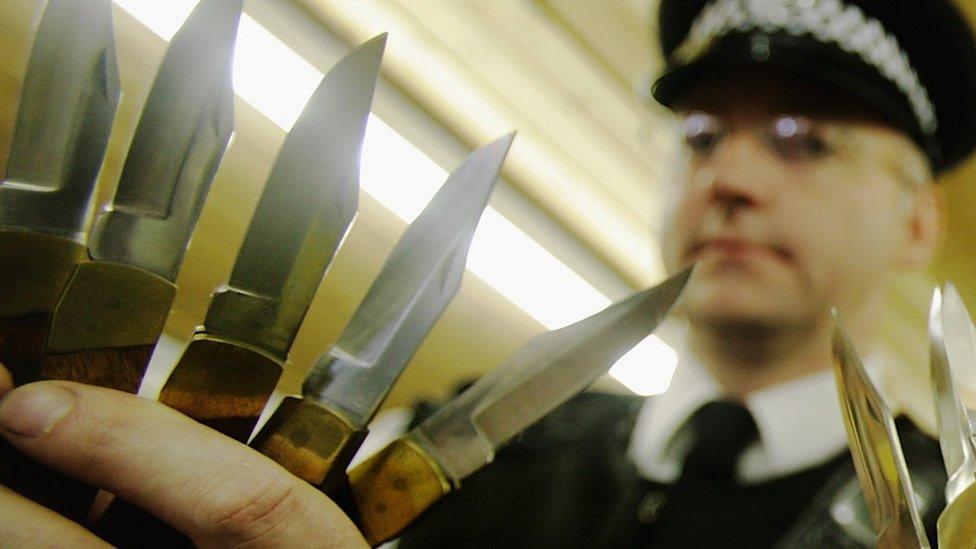
- Published31 July 2019
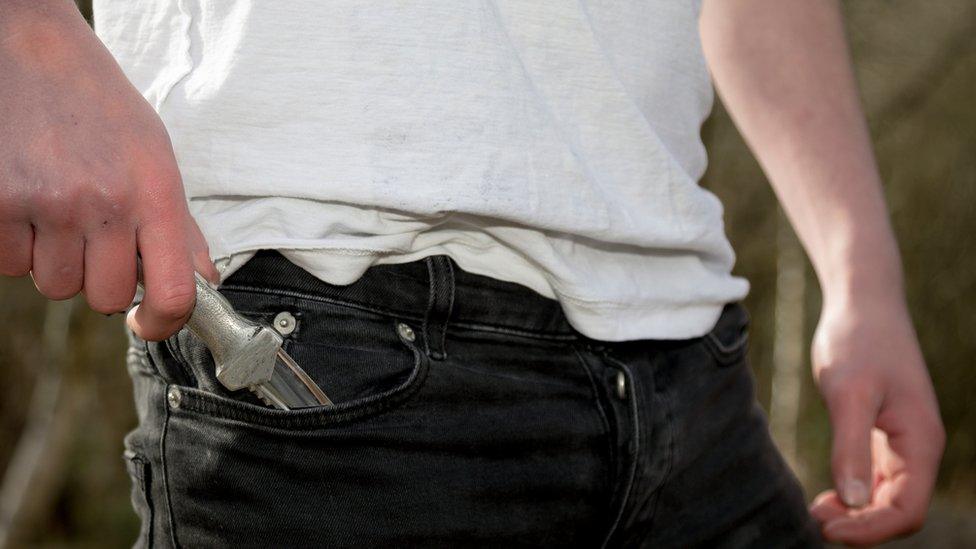
- Published23 July 2019